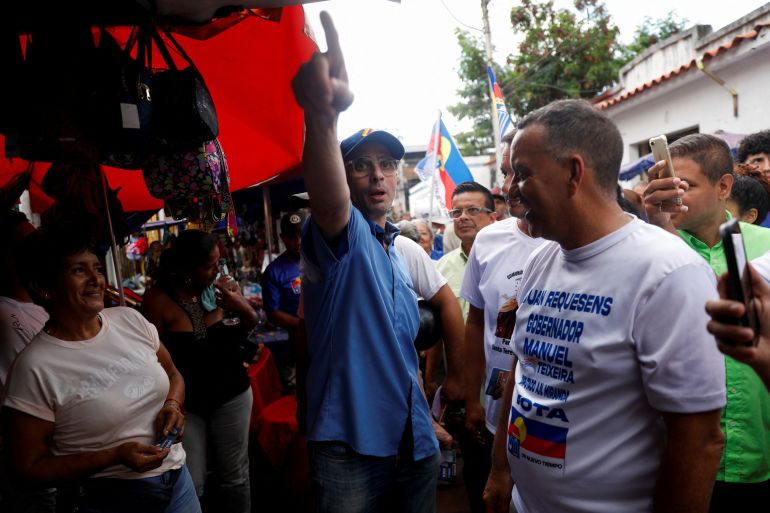In the face of a heightened government crackdown and opposition leaders calling for a boycott, Venezuelans are casting their ballots in legislative and regional elections.
Since last year’s disputed presidential election, which President Nicolas Maduro claimed won despite contradictory evidence, the election on Sunday is the first to allow a wide turnout for voters.
Two days prior, the government detained numerous people, including a prominent opposition leader, and accused them of being involved in an alleged plot to thwart the election.
Members of the military reportedly outnumbered voters in some of the capital’s polling places in the first hours after the elections were conducted in some of Caracas’s polling locations. The largest polling station in the country had no lines, including the largest, in stark contrast to the hundreds of people who had gathered for the presidential election on July 28.
Many appeared to have given the electoral process a bad rap. After they rigged the elections last year, I’m not going to vote. What is it for? Paula Aranguren, a resident of Caracas, said, “I don’t want to be disappointed again.”
Voting is seen as a legitimization of Maduro’s legitimacy and what the opposition calls the repressive apparatus of his government.
In an effort to quell dissent, 25 people were reported killed and more than 2, 000 people were detained, including minors, poll workers, political activists, and protesters. Additionally, the government issued arrest warrants for opposition leaders, bringing charges against them that range from falsifying records to conspiracy.
Despite the dangers, some groups have continued to organize important forms of government resistance.
Henrique Capriles, a former opposition presidential candidate who is now running for a seat in the National Assembly, stated to Al Jazeera, “History is full of evidence that voting is an instrument toward democracy.”
“I think the peaceful fight for our constitution was kept alive by our standing for our rights last year because we only have a year to show our opposition to Maduro and his government,” Capriles said.
In the meantime, the ruling party is promoting a widespread victory, just like it has done for previous regional elections.
Only 15.9 percent of voters, according to a nationwide poll conducted from April 29 through May 4, had a high likelihood of casting a ballot on Sunday, according to the research firm Delphos, based in Venezuela.
Of those, 74.2 percent said they would support candidates for the United Socialist Party of Venezuela and its allies, and 13.8 percent said they would support candidates linked to two opposition leaders who are not abstaining from the elections.
Maduro accuses the opposition of attempting to destabilize the nation.
Before the election, he told supporters, “We have already captured more than 50 mercenaries who came in to plant bombs or launch violent attacks in the country,” adding that fascism’s “death throes have tried to bring in mercenaries.”
According to political analysts, there are practically no guarantees that free and fair elections will occur.
“There won’t be witnesses at the table; there won’t be many.” According to political analyst Benigno Alarcon, “nobody wants to be a witness,” the election will likely be unfair due to low voter turnout, no understanding of who the candidates are, and no lack of international observers, according to Al Jazeera.
Some voters who cast ballots on Sunday claimed they did so out of concern for losing their state-controlled benefits, including food and other benefits.
Source: Aljazeera

Leave a Reply